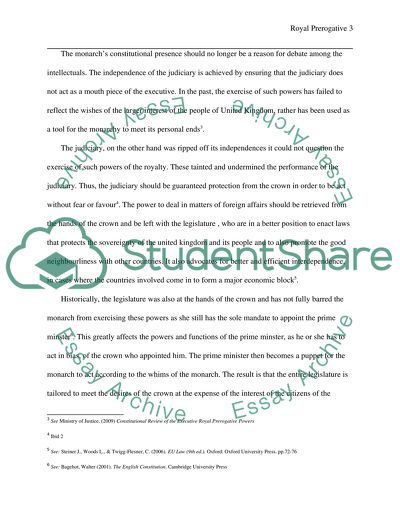Cite this document
(“The Royal Prerogative is a feature of the UK Constitution in need of Essay”, n.d.)
Retrieved from https://studentshare.org/law/1443652--the-royal-prerogative-is-a-feature-of-the-uk
Retrieved from https://studentshare.org/law/1443652--the-royal-prerogative-is-a-feature-of-the-uk
(The Royal Prerogative Is a Feature of the UK Constitution in Need of Essay)
https://studentshare.org/law/1443652--the-royal-prerogative-is-a-feature-of-the-uk.
https://studentshare.org/law/1443652--the-royal-prerogative-is-a-feature-of-the-uk.
“The Royal Prerogative Is a Feature of the UK Constitution in Need of Essay”, n.d. https://studentshare.org/law/1443652--the-royal-prerogative-is-a-feature-of-the-uk.


